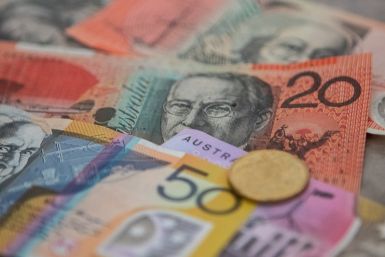Australian Stock Market Report – Afternoon 1/2/2013
MARKET CLOSE
(4.30pm AEST)
Welcome to 2013! The Australian sharemarket had its best start to a new year since 2001, with the All Ordinaries Index (XAO) rising by an impressive 1.2 per cent or 58.3 pts to 4722.9. The House of Representatives in the U.S finally passed the Senate's 'fiscal cliff' bill this afternoon helping to keep the market positive. This was considered to be somewhat of a compromise between the Democrats and Republicans. Tax increases will be introduced but for the higher income earners (+$400,000); whereas spending cuts will be delayed for two months. This would likely leave many Republicans a little dissatisfied and is still considered a temporary solution to avert the risk of falling off the 'fiscal cliff'.
July 27 was the last time the local market rose by a more significant margin. Volume was still extremely light however, with investors much more interested in the beach and spending time with family rather than investing. Sharemarkets in China and Japan were closed today, while the U.S, U.K, South Korea, Japan and China all had their markets shut yesterday. Despite movement in markets over the next week or two, volume is likely to remain on the light side and cannot be taken too seriously.
The mining and energy sectors were amongst the worst performers in 2012, however kicked the year off on the right foot, with the S&P/ASX 200 Materials index rising by 2.29 per cent while the S&P/ASX 200 Energy index jumped by 1.22 per cent. BHP Billiton (BHP) gained by 1.99 per cent or 74 cents to $37.84 while the smaller Rio Tinto (RIO) rose by a more impressive 2.44 per cent or $1.61 to $67.62. The mining sector only rose by 1.03 per cent last year, whereas the broader sharemarket jumped by 13.5 per cent.
The big four banks also ended the session higher, but by a less impressive margin. Commonwealth Bank (CBA) rose 0.87 per cent or 54 cents to $62.72 while the other three majors gains between 0.16 per cent and 0.4 per cent. 2012 was a stellar year for the financials however, with the sector gaining an impressive 21.7 per cent.
No major market moving economic news was issued today, however the latest house price data in addition to manufacturing numbers were released. The Australian Industry Group's performance of manufacturing index (PMI) was unchanged at 44.3 pts in December. This is the 10th month that the index has been below 50.0, suggesting contraction in the sector.
Home prices continue to remain largely stagnant, with values in capital cities falling by 0.3 per cent last month. Over 2012, home prices slipped by just 0.4 per cent. CommSec's Chief Economist, Craig James said that "In the past, buying and selling property was considered an attractive way to make money. The theory was that home prices would rise around 8 per cent a year, almost guaranteeing you would make money. That was in the past. Now Aussie consumers are more cautious on going into debt, restraining demand for existing homes. Home prices were broadly flat in 2012 after falling 3.8 per cent in 2011 and rising 5.4 per cent in 2010."
Volume of shares traded came in at 1.08 billion today, worth just $2.29 billion. 656 shares were up, 290 were weaker and 295 ended unchanged.
At 4.30pm (AEDT) on the Sydney Futures Exchange, the ASX24 futures contract is down 0.06 per cent or 3 pts to 4681.
Due to the end of daylight savings in Europe, most major European markets are now trading between 7pm (AEDT) and 3.30am (AEDT). Futures are currently pointing to a strong rise at the start of trade tonight in Europe.
U.S futures are also pointing to a strong rise in tonight. Due to the start of daylight savings in Australia and its end in the U.S, American markets will now be trading between 1.30am (AEDT) and 8am (AEDT).
Looking ahead, manufacturing data is scheduled to be issued in the U.K, the broader Eurozone and the U.S. This is not likely to be market moving information however.
Turning to currencies, the Australian dollar (AUD) gained some ground against a basket of currencies throughout the day and is around US1c higher against the greenback than this time last Friday. One AUD buys US104.7 cents, is trading at £64.2 pence and €78.8 cents.
Australia is a commodity based economy, with commodities in general accounting for almost 80 pct of all our exports over the past nine months. In essence, when the going gets tough globally, there is fear of less demand for our commodities, which tends to result in a weaker AUD.
[Kick off your trading day with our newsletter]
More from IBT Markets:
Follow us on Facebook
Follow us on Twitter
Subscribe to get this delivered to your inbox daily






